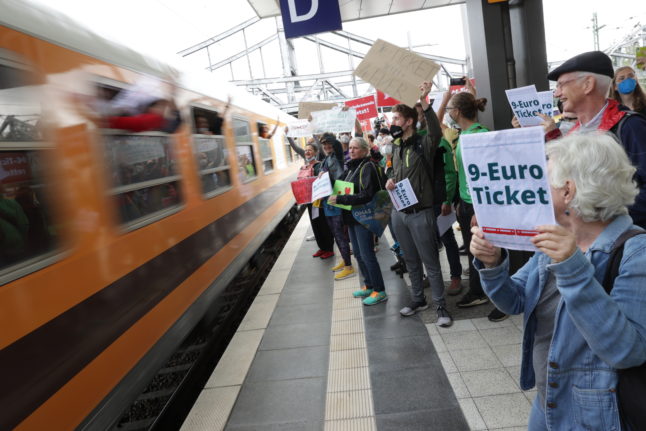The €9 ticket, which has enabled passengers to travel at a budget price on all public transport in Germany throughout the summer months of June, July and August, will come to an end this week.
The Association of German Transport Companies (VDV) reported that over the 3 months, 52 million tickets were sold and called the initiative a “complete success”. On top of this, more than 10 million people who already had transport cards – known as Abos in Germany – received the discount automatically. Meanwhile, an estimated one billion journeys were made each month.
The Association’s CEO, Oliver Wolff, reported that one of the key findings was that there were “a lot of switchers”, as 10 percent of the trips made with the €9 ticket were used for a route that would otherwise have been taken by car.
As a result, the VDV estimates around 1.8 million tons of CO2 were spared during the offer period – having roughly the same effect as if there had been a speed limit on German highways for a year.
READ ALSO: 5 things to know about public transport in Germany after the €9 ticket
Throughout the offer period, the VDV and Deutsche Bahn surveyed 6,000 people per week – amounting to a total of 78,000 people questioned – to find out what they thought about the ticket.
The survey showed that the low cost was the main reason why 56 percent of those asked bought the ticket, while 43 percent of respondents said the avoidance of car travel was an important reason for purchase. Flexibility and nationwide validity were also cited as important reasons for buying the ticket.
Calls for a fast follow-up offer
Though there have been numerous calls for a cheap successor to the €9 ticket, a new nationwide offer is yet to be announced.
VDV CEO Oliver Wolff called on the government to lose no more time in finding a new, cheap transport deal.
“If we take the transport transition and climate change seriously, we must act now,” said Wolff.
“The ticket has been very successful and it’s worth thinking about continuing it,” he said. He also joined several state transport ministers in calling for more investment to improve local public transport services.
READ ALSO: €49 ticket and payouts for low earners – Germany’s SPD plan new relief package
Chairwoman of the Conference of Transport Ministers of the Federal States, Maike Schaefer also demanded concrete proposals from the federal government for a follow-up solution.
“The results of the market research clearly show that people want public transport if the ticket is simple and understandable and can be used flexibly everywhere,” she said.



 Please whitelist us to continue reading.
Please whitelist us to continue reading.
If Berlin is planning a follow up ticket, I wish they would consider including Zone C along with A and B. If not all of Brandenburg, then it would be nice if the follow up ticket would be valid on a corridor to the BER Airport. It would make good sense, in my opinion.